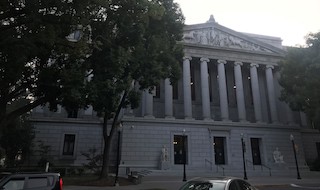It is generally understood that to pursue a legal malpractice action against a criminal defense attorney, the plaintiff (the former criminal defendant) must establish actual innocence of the underlying criminal charges.
(2011) 200 Cal.App.4th 1184, 1189. Moreover, the plaintiff must obtain post conviction relief in the form of a final disposition of the underlying criminal case, for example, by acquittal after retrial, reversal on appeal with directions to dismiss the charges, reversal followed by the People’s refusal to continue the prosecution, or a grant of habeas corpus relief – as a prerequisite to proving factual innocence in a malpractice action against former criminal defense counsel.
This two-step actual innocence requirement does not apply, however, in a legal malpractice action premised on professional negligence in civil commitment proceedings under the Sexually Violent Predator Act (SVPA), as attorney Alan R. Whisenand learned in an action brought against him by Clay Joseph Jones, his former client.
Jones was convicted in 1988 of one count of lewd and lascivious conduct with force upon a child under age 14 (Penal Code § 288(b)), plus eight counts of lewd and lascivious conduct (without force) upon a child under 14 (Penal Code § 288(a)) and four counts of sodomy (Penal Code § 286(c). At the time, Jones had a prior felony conviction and was sentenced to thirty-three years in prison. He appealed the sentence and it was reduced to 31 years.
 Coalinga State Hospital
Coalinga State Hospital
Jones was released from prison in 2004 and transferred to the Sacramento County jail pending SVPA commitment proceedings. He was later transferred to the Coalinga State Hospital pending SVPA proceedings. Jones then hired an attorney named Saria, who filed a petition for habeas corpus. The petition was denied and Jones sued him.
Whisenand was then appointed to represent Jones' in the SVPA proceeding in 2007. Jones SVPA trial was scheduled to start in 2014, but in 2013, Jones sued Whisenand for malpractice, as well as civil rights violations.
Whisenand demurred to the complaint on grounds that Jones failed to plead actual innocence of all charges in the underlying criminal case or post-conviction exoneration. The trial court sustained the demurrer and Jones filed a first amended complaint. Whisenand demurrered again on the same grounds and the trial court sustained the demurrer. Jones then filed a second amended complaint and Whisenand demurrered again. Finally, the judge dismissed Jones’ complaint and denied leave to amend.
 Court of Appeal Third Appellate District Sacramento
Court of Appeal Third Appellate District Sacramento
Jones appealed the ruling to the Third Appellate District, which agreed with Jones (Clay Joseph Jones v. Alan R. Whisenand (2017 DJDAR 1318)). The appellate court explained that the actual innocence standard would not apply to an action for malpractice under the SVPA, as it is civil in nature, as stated in People v. Allen (2008) 44 Cal.4th 843, at 860 and Moore v. Superior Court (2010) 50 Cal.4th 802, at 815. Indeed SVPA proceedings take place after a sex offender completes his or her prison term.
However, the trial court did not err in sustaining the demurrer on grounds that Jones did not comply with the favorable termination requirement because the SVPA proceedings against him were still proceeding. Therefore, the trial judge should have sustained the demurrer with leave to amend if the SVPA proceedings resolved in his favor.
The Third Appellate District added that its ruling did not foreclose Jones’ other remedies while SVPA proceedings were still proceedings. He could file a Marsden motion for ineffective assistance of counsel, he could file a petition for habeas relief while asserting ineffective assistance of counsel and directly appeal the order of commitment after the SVPA trial, if it did not end in his favor.
We interpret this concluding comment by the appellate court as a strong suggestion for Jones, but believe any such motion would end in Whisenand’s favor, helping Whisenand in any further vendetta by Jones against Whisenand.
The citation for the Third Appellate District Court ruling discussed above is Joseph Jones v. Alan R. Whisenand (3d. App. Dist., 2017) 8 Cal.App.5th 543, 214 Cal. Rptr. 3d 72.
 Coalinga State Hospital
Coalinga State Hospital Court of Appeal Third Appellate District Sacramento
Court of Appeal Third Appellate District Sacramento